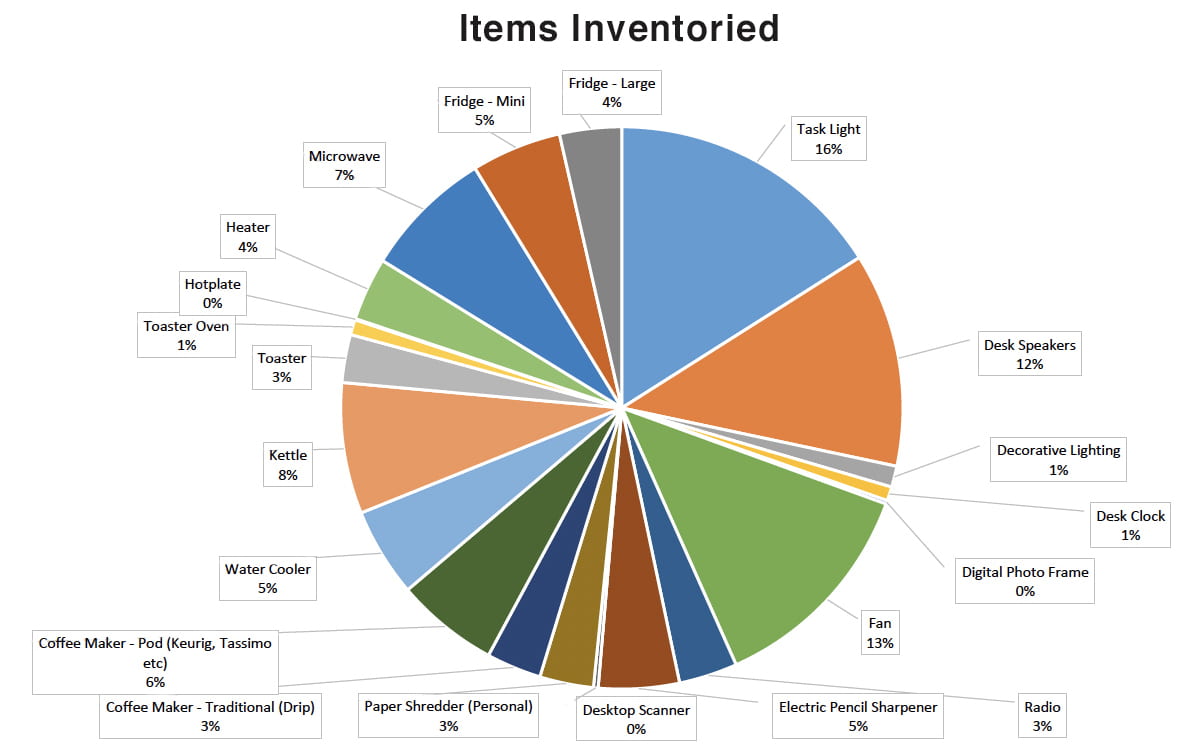


In the summer of 2018, we launched a plug load inventory to find out what non-essential appliances were being used by staff and how much energy they were using.
The inventory looked at all work stations, kitchenettes and copy rooms across campuses. The data, taken on iPads using excel spreadsheets, took just over 64 hours to collect. Every non-essential appliance in each space, whether plugged in or not, was counted. We also looked into whether workstations were energy-efficient, sustainable, and comfortable for employees.

Percentage of inventoried items by group:
| Item | % |
|---|---|
| Personal Office Supplies | 21% |
| Kitchen Appliances | 20% |
| Additional Lighting | 17% |
| Heating and Cooling | 17% |
| Beverage Appliances (coffee makers & water coolers) | 14% |
| Other | 3% |
Based on the inventory, we came up with several initiatives to reduce plug load. There are also commitments the College can make to create healthy environments that are comfortable and efficient. These include ensuring certain temperatures in offices and that there are common area spaces where staff can share appliances.
See our eTV Plug Load Inventory presentation.
RRC Polytech campuses are located on the lands of the Anishinaabeg, Ininiwak, Anishininwak, Dakota Oyate, and Denésuline, and the National Homeland of the Red River Métis.
We recognize and honour Treaty 3 Territory Shoal Lake 40 First Nation, the source of Winnipeg’s clean drinking water. In addition, we acknowledge Treaty Territories which provide us with access to electricity we use in both our personal and professional lives.